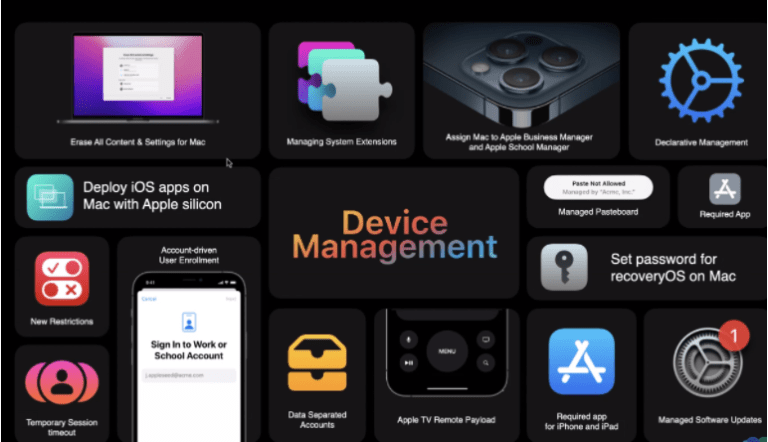Apple’s refresh of the iPhone and its rollout of iPadOS15, iOS 15, and macOS Monterey bring new features to users, with a focus on enterprise admins who now have management tools.
Apple’s enterprise features in the software releases won’t get a lot of play. Its competitor, Samsung, presents consumer-first devices that include recognition for business too. However, Apple’s 2021 iPhone launch is going to be about consumer-first features. That is not to say Apple doesn’t care about getting enterprise action. In the field, Apple’s hardware and software compete with Android in education and B2B.
Apple’s push to be friendlier
In recent years, it has emerged that a platform that is easier to work with for admins and central IT enjoys wider adoption. Apple is focusing on both central device management programs and bring-your-own-device employees. Usually, Apple’s operating system upgrades come at the same time as its iPhone announcements.
One of the additions covers mobile device management (MDM) updates and declarative management. Apple has features for easier device management and allows companies like Jamf to add capabilities on top of iOS. Declarative management updates Apple’s existing device management but enables settings and status reports to have more dynamism without constant polling.
Attracting business users
Another addition is Mac fleet management, which extends the MDM updates to macOS to allow admins the power to force delayed software updates and erase all content and settings with ease.
MacOS tools aim to make onboarding and offboarding employees easier with tools to erase hard drives and content as fast on MacOS as on iOS. Enterprises will have the ability to manage offboarding centrally.
There are tools to share iPads in business use cases like retail and hospitality for sessions, as well as managed IDs and data separation for ‘bring your own device’ management.
